
Which animals can I see on an Antarctic expedition?
An Antarctic expedition sounds just a tad cold, doesn’t it? It’d probably be choppy too, maybe even a little bit wet. But is it worth it?
You travel for a long, long time to get to the southern tip of Chile before departing for Antarctica. You board an expedition cruise ship, suitably built and luxuriously decked out with all the amenities you could possibly need and more. There’s a heated swimming pool, a sauna; even a smoothie bar and a snow room. But before all of that you get called for dinner - an opulent affair in the ship’s Observation Lounge. You order the Caprese salad to start, the steak for main and you'll take the dessert menu later, disregard what's there and order it all. Fuel for the machine, you’re out chasing penguins tomorrow.
And just as the waiter comes to ask whether it’ll be red, white or something softer, you see it: A real-life Antarctic blue whale barrelling and spouting right beside the ship, right underneath your window. A moment you never realised you’d waited your whole life for.
Antarctica is home to some of the most magnificent wildlife you’ll ever meet -- but which animals can you meet there?
Penguins
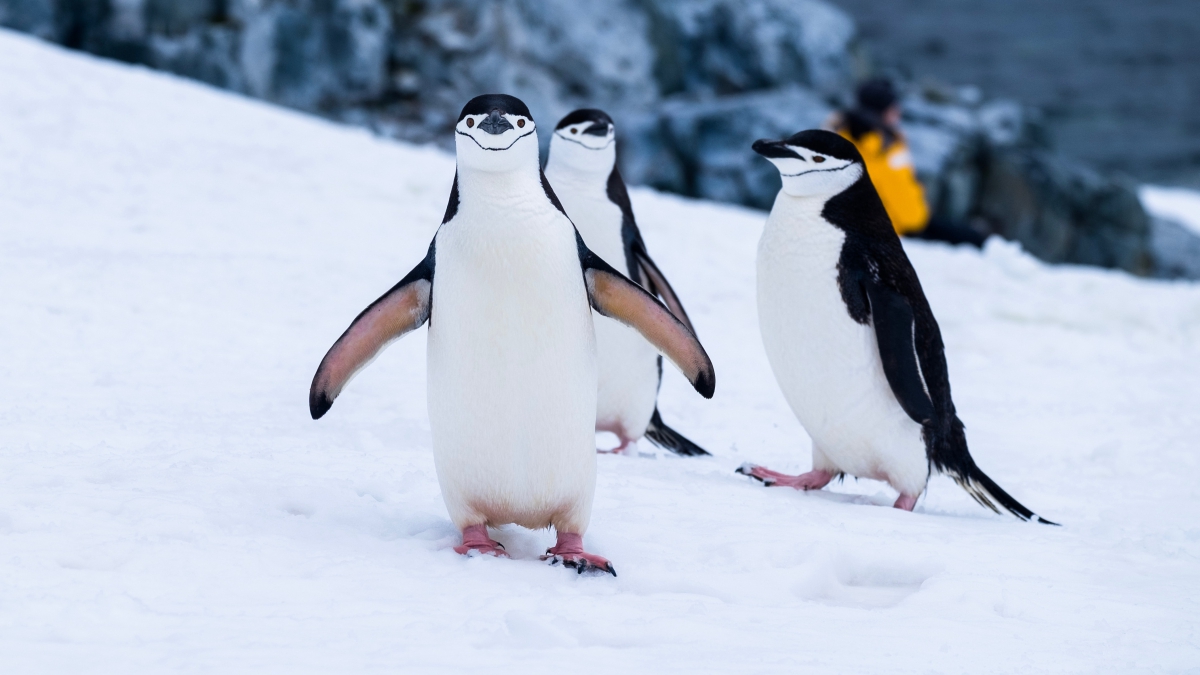
Penguins stand in a polar class of their own. There are eight Antarctic species of everybody’s favourite flightless bird and on an expedition you’ll see all kinds. From the largest emperors to the tiniest, cheekiest rockhoppers; macaronis, adélies, magellanics, gentoos, and kings - Antarctica is penguin paradise and a large part of your Antarctic expedition will be spent seeing, hearing and smelling these flightless wonders.
“Penguins are one of the best antidotes for despair that I know. They are living lessons in caring for the planet and its creatures, in all their beauty and vulnerability.”
Charles Bergman, Author and Photographer
Orcas
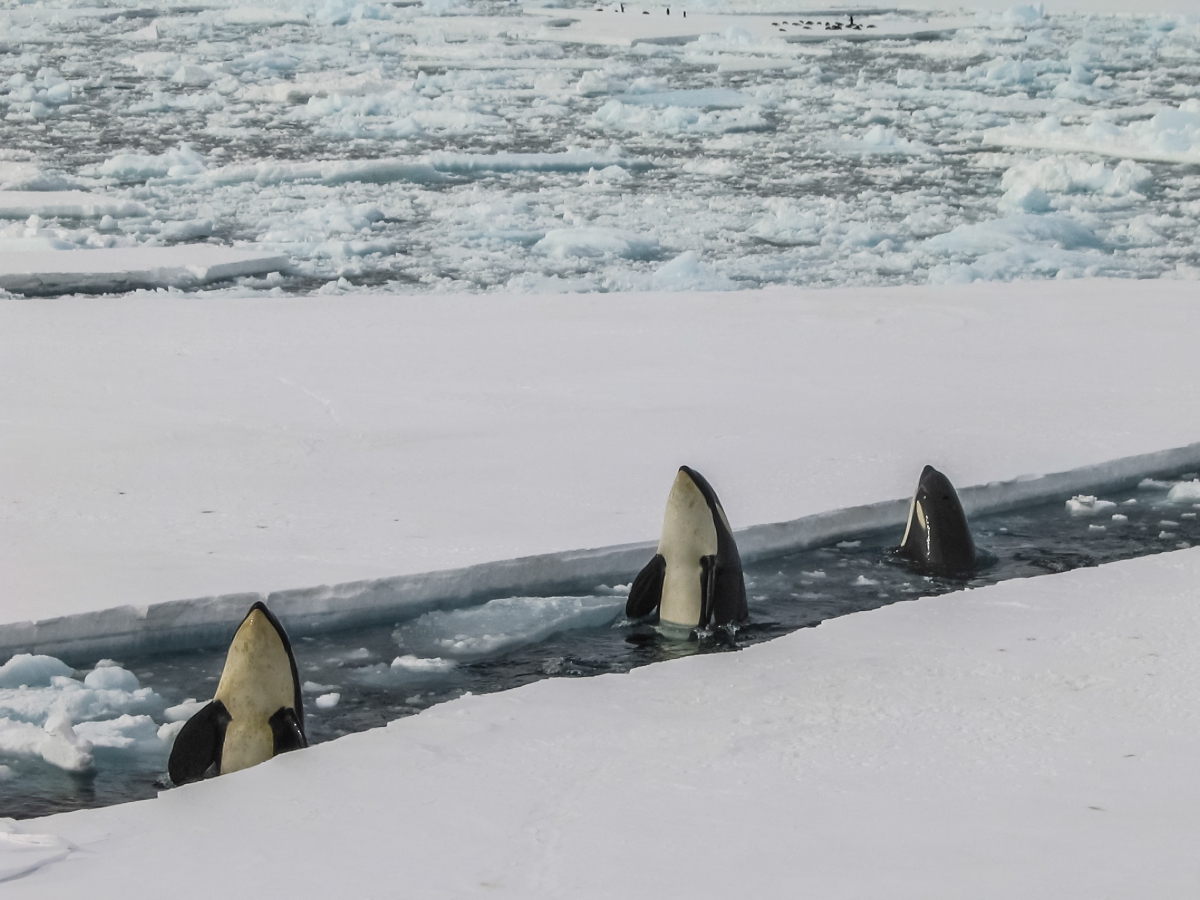
Orcas are one of the world’s most powerful predators, owing to their intelligent teamwork in pods of up to 80, fearsome jaws, and unique echolocation communication techniques. The largest in the dolphin family, orcas sit at the very top of the Antarctic food chain with four-inch teeth feasting on a diverse diet of fish, penguins, seals, and even blue whales.
Blue whales
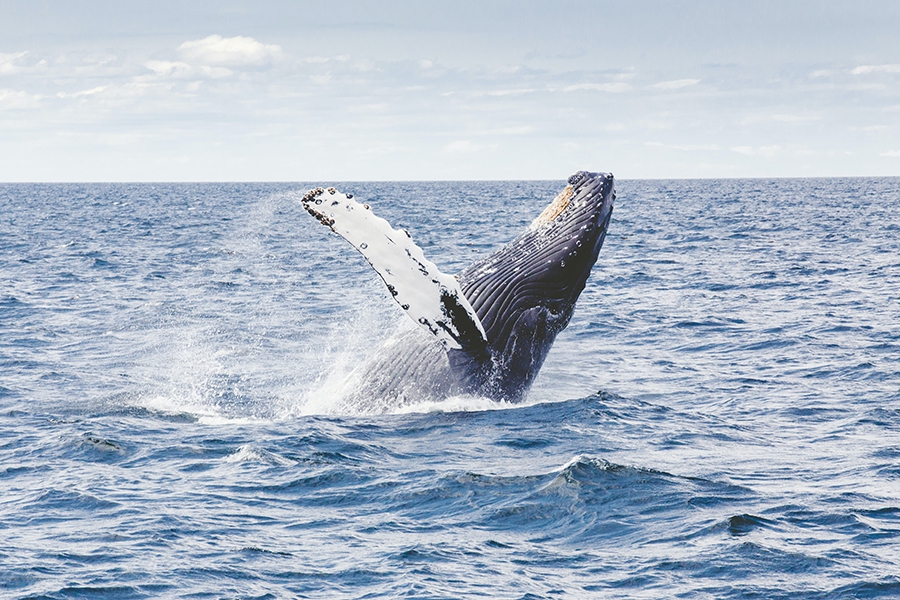
Blue whales are massive; the largest animal in the world. They’re three buses in length and 33 elephants in weight. Their heart is the size of a small car and their call is louder than a jet engine - much louder. They’re so big, even a newborn calf enters life as one of the largest creatures alive. Enormous, you can’t miss them; critically endangered, you might.
“After three years of surveys, we are thrilled to see so many whales visiting South Georgia to feed again. This is a place where both whaling and sealing were carried out extensively. It is clear that protection from whaling has worked, with humpback whales now seen at densities similar to those a century earlier, when whaling first began at South Georgia.”
Dr Jennifer Jackson, Whale Ecologist at British Antarctic Station
Leopard seals
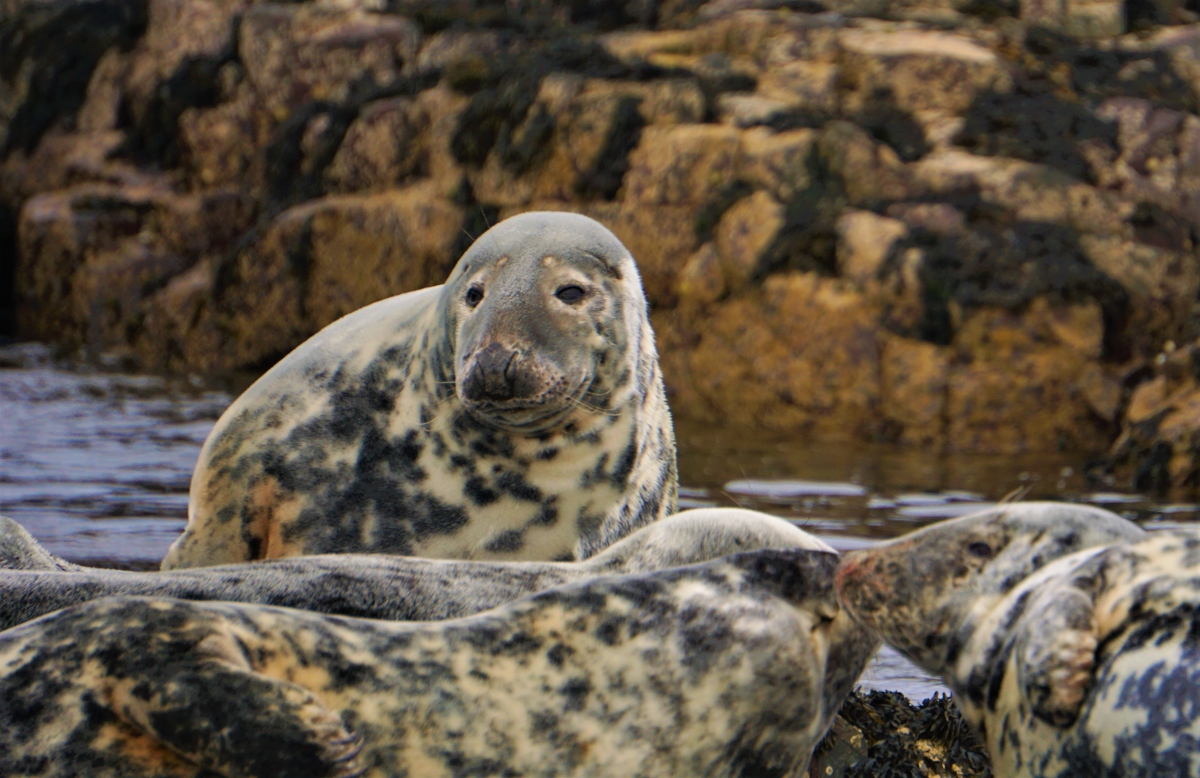
Named after their spotty coats, leopard seals eat all sorts as part of their carnivore diets. No krill, squid, octopus, sea snakes, or other seabirds are safe from a leopard seal’s 180° bite. Like their elephant brother, leopards have a long history of run-ins with over-zealous humans. Expeditioners are advised to keep their distance.
Elephant seals
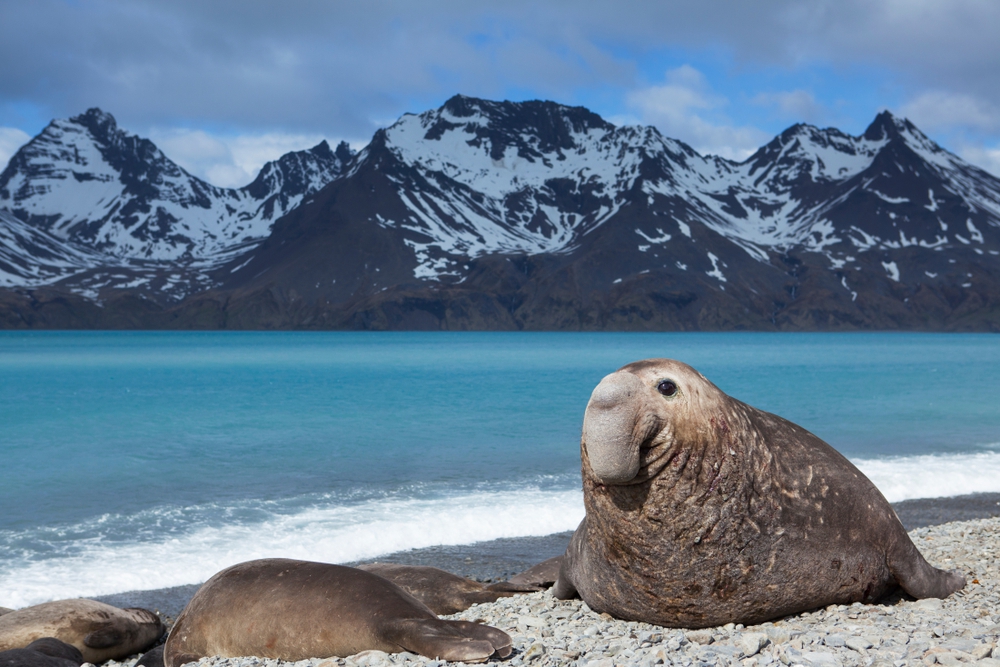
The clue is in the name, and you can’t mistake an elephant seal through their rather large noses. Male elephant seals spend up to 80% of their lives in the ocean and they can hold their breath for more than 100 minutes. They’re incredibly aggressive and can weigh up to five times heavier than a grizzly bear.
"If one is lucky, a pup may come to investigate, offering one of the best wildlife encounters ever. However, it is vital not to touch them. We don't want to infect them with germs that we may have brought from home, to which they may be susceptible."
Mikolaj Golachowski, Biologist
Yes, an Antarctic expedition is worth it.
If you want to come up-close-and-personal with Antarctica’s unique wildlife, call a dedicated Panache Cruises connoisseur on 0161 513 8200.



